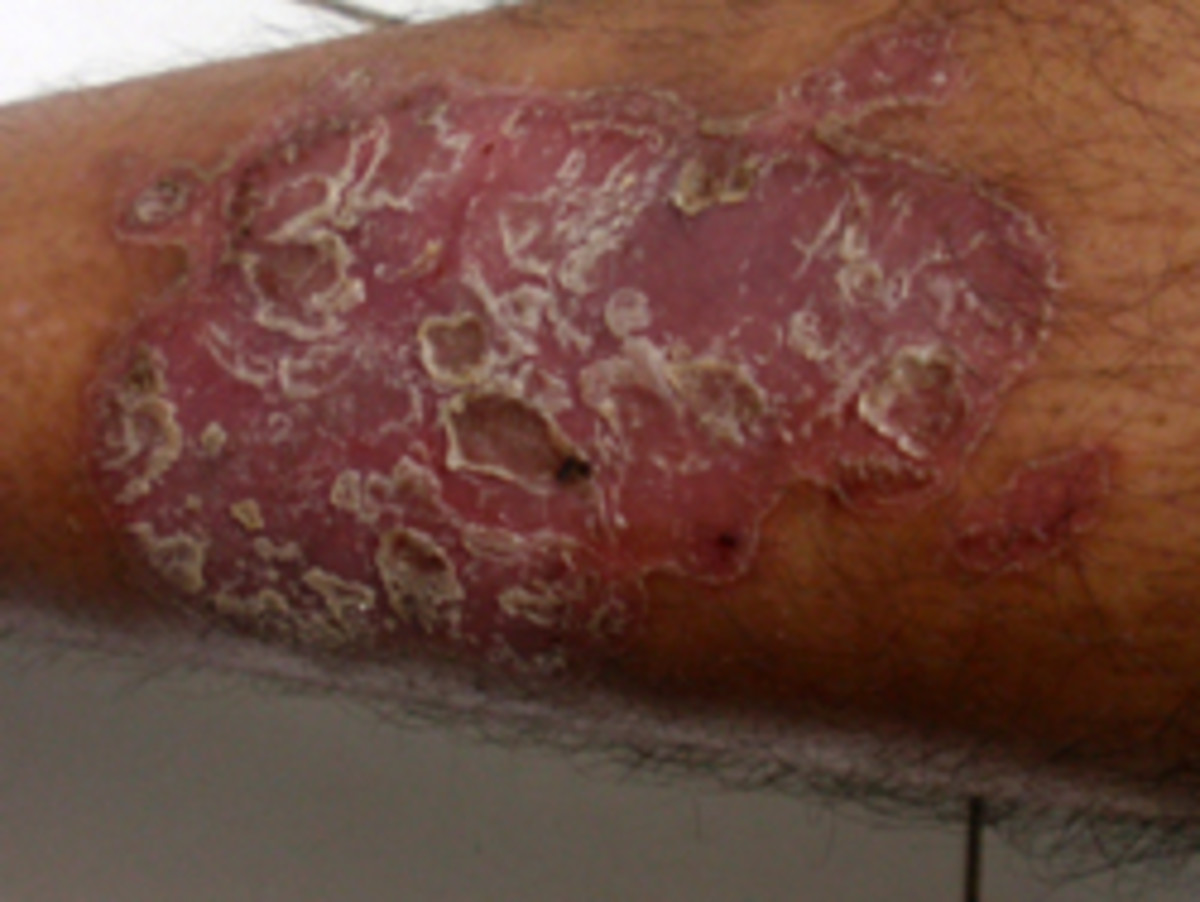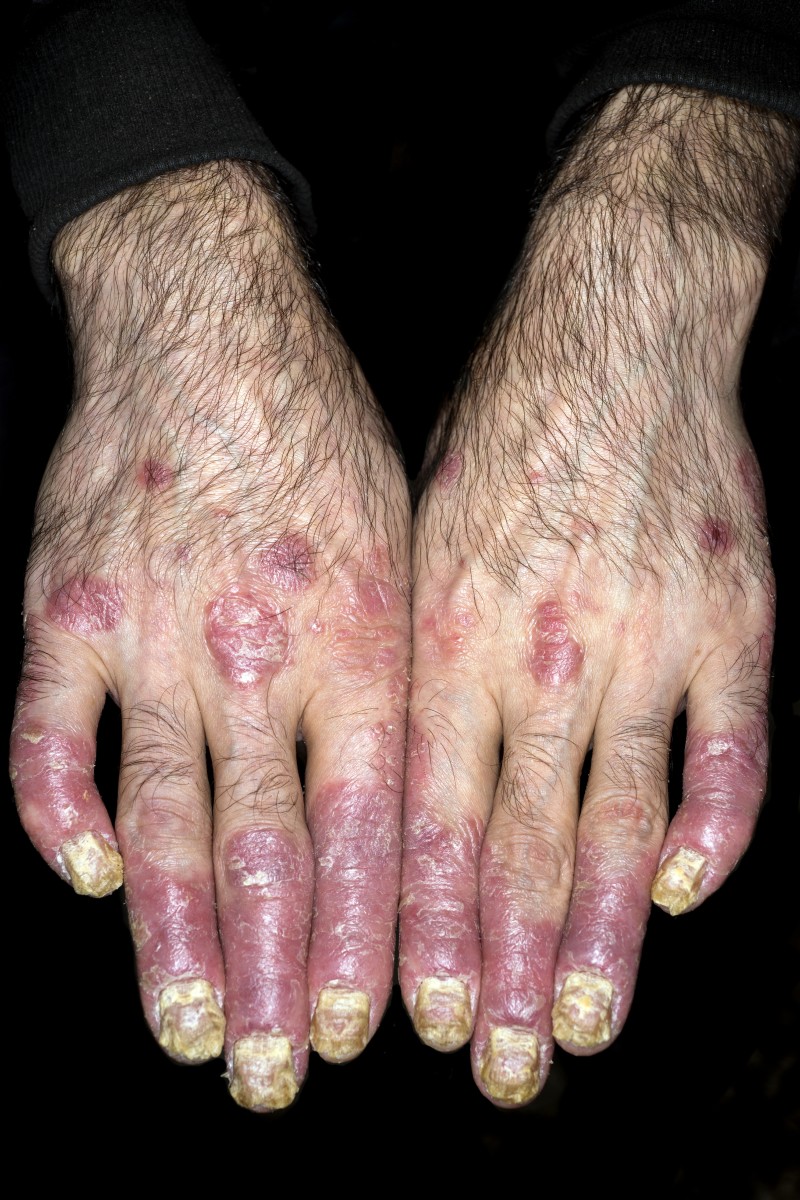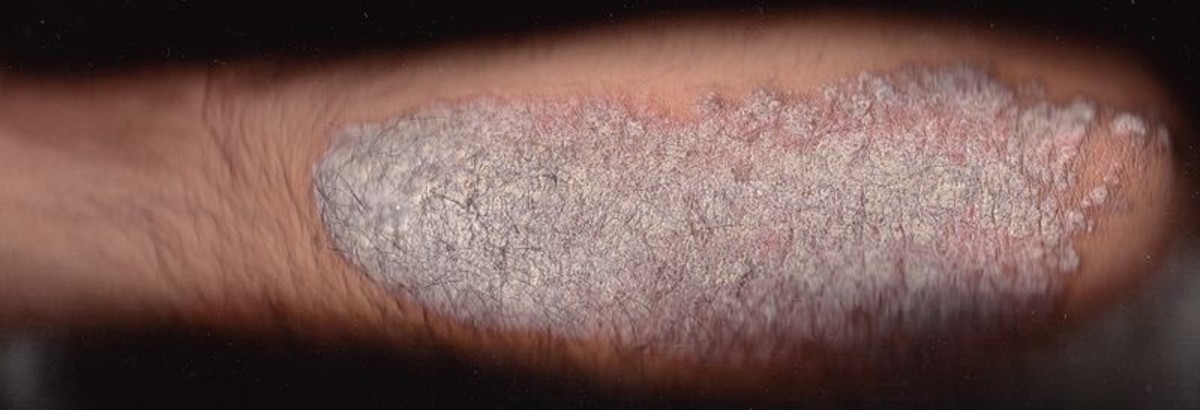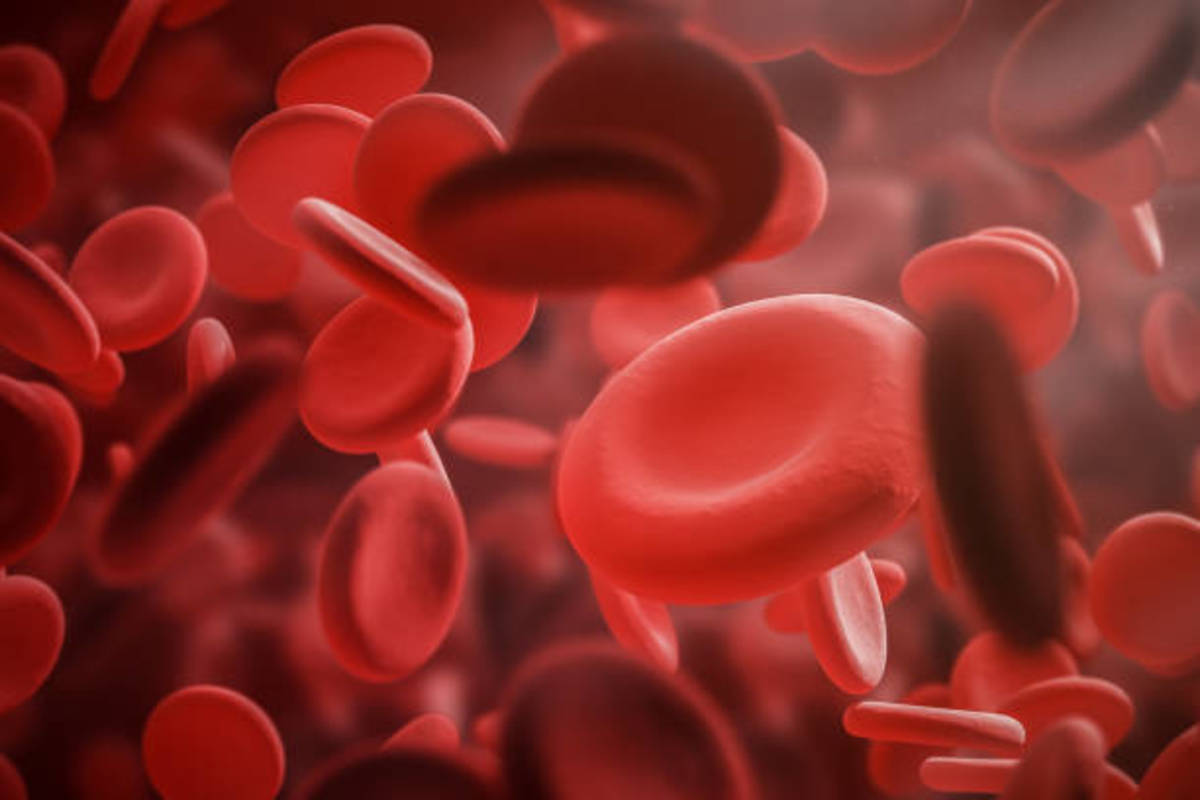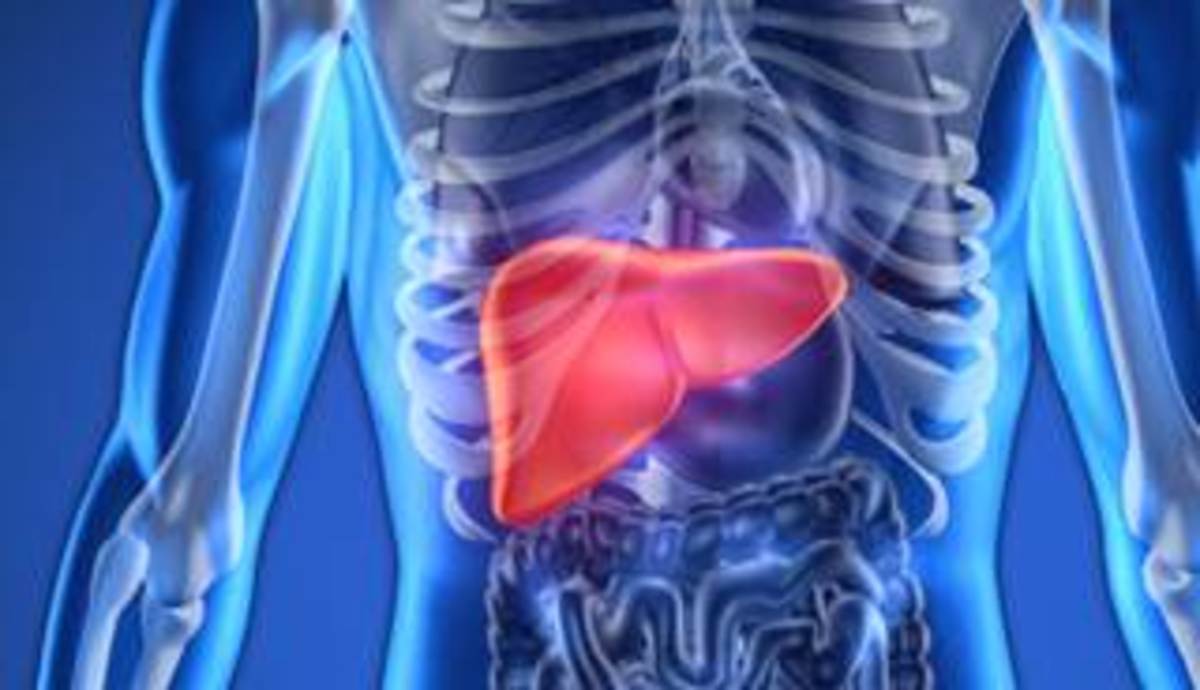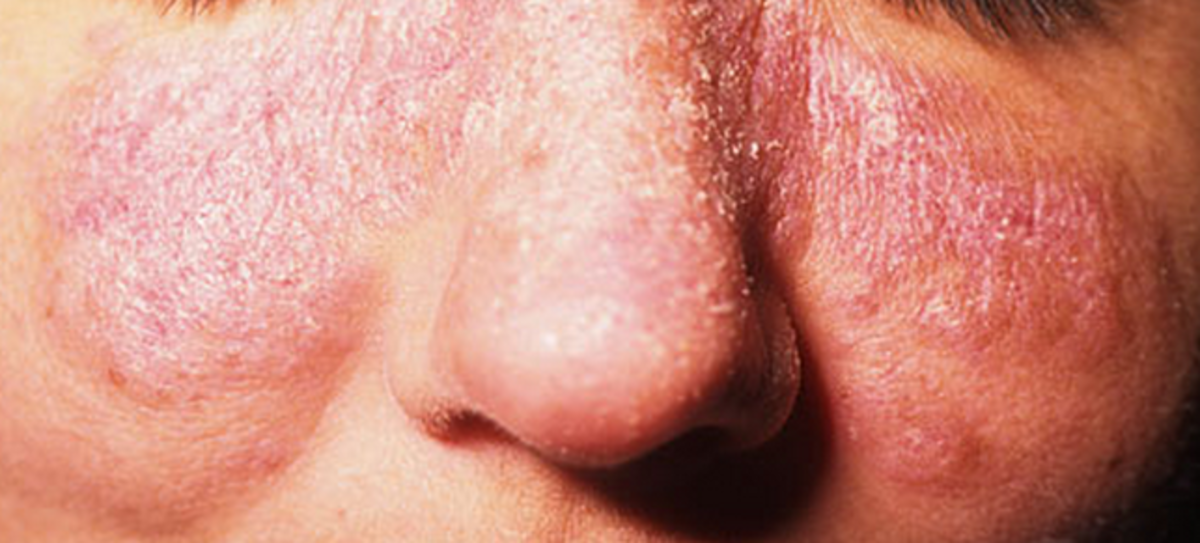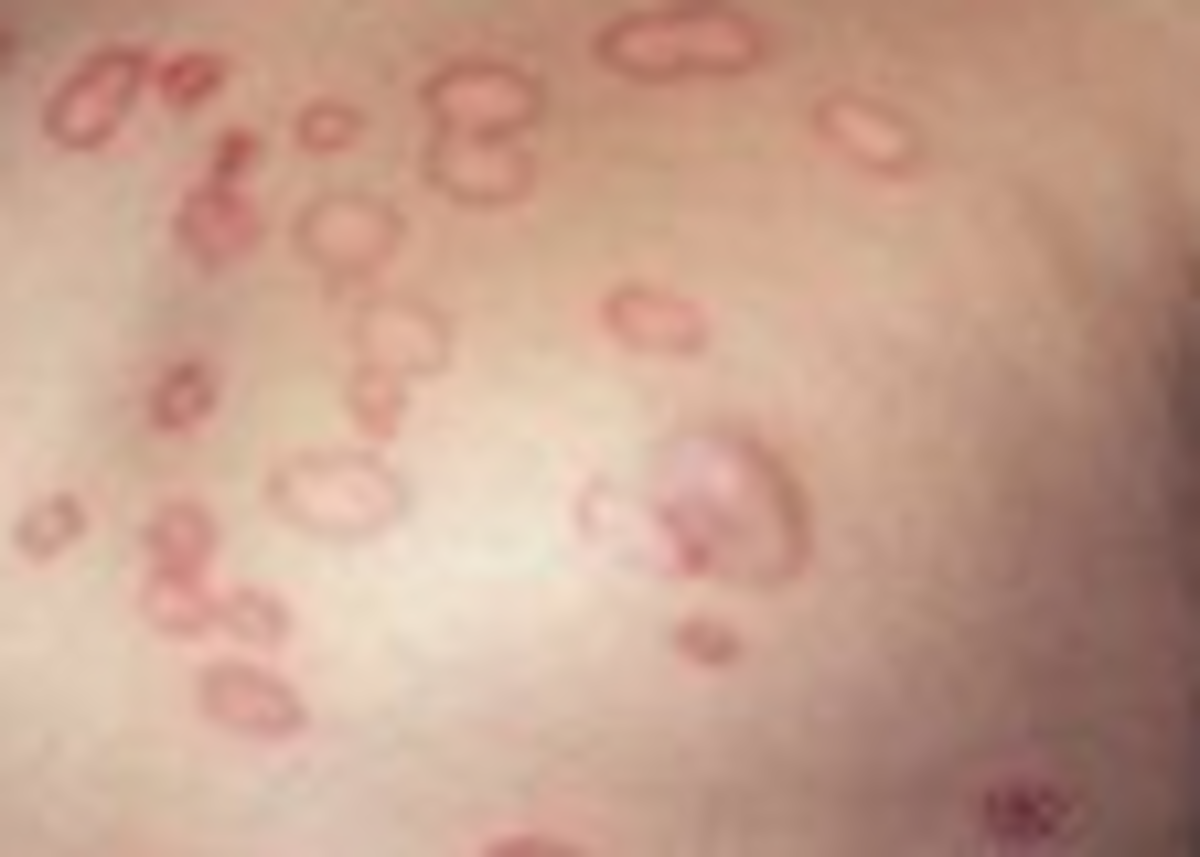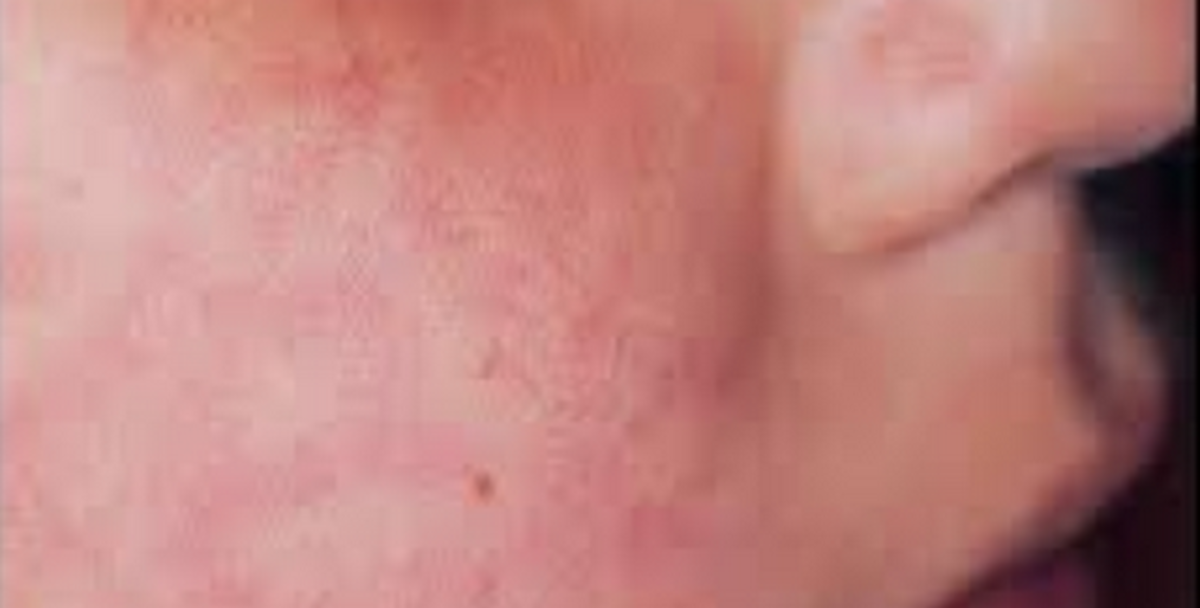- HubPages»
- Health»
- Diseases, Disorders & Conditions»
- Skin Diseases & Conditions
Psoriasis - A Natural Approach
Psoriasis Scales
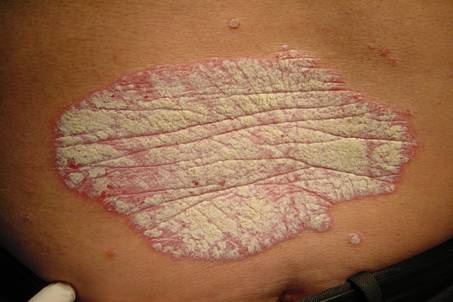
Symptoms and Causes of Psoriasis
Psoriasis presents itself as rough, scaly patches of skin which are redder than normal under the scales. There are often cracks in the area, which may bleed, and sometimes the fingernails and/or toenails are involved in which case the nails become discoloured and pitted. In a few cases joint inflammation similar to that in rheumatoid arthritis is also present.
A mild case of psoriasis looks much like eczema, which although it looks much the same is a completely different disorder with different causes and needing different treatments - although there is some overlap. For this reason, and also because psoriasis can easily become infected and get very difficult indeed to treat, it is very important to get a proper diagnosis from a professional of any abnormal skin condition.
The immediate cause of psoriasis is connected with the way that the skin normally maintains itself. The outer layer (perhaps 0.2mm) of the skin, called the epidermis, is actually dead, being composed of small scales composed almost entirely of keratin - the same protein that comprises most of the hair and nails. These scales gradually wear away and are shed; approximately 50% of the dust in the average house consists of these shed scales. They are replaced from underneath by the cells of the layer underneath, the dermis, multiplying.
In psoriasis, the cells of the dermis reproduce too quickly (5 or 6 days instead of 28) and this means that the cells of the epidermis are immature, which in turn means that they form large scales which do not properly do the job of the epidermis - which is essentially to keep out various environmental attacks and infection. Also, the rapidly reproducing dermal cells lead to inflammation, which is the basic cause of the skin reddening found in psoriasis. The inflammation also leads to itching and sometimes pain.
The cause of the abnormal cell reproduction is somewhat controversial, but there are two main causes. One is the presence in the blood of toxic polyamines produced by fermentation, by gut bacteria in the large intestine, of incompletely digested protein which puts the liver under strain. The other is an auto-immune reaction similar in many ways to that which causes rheumatoid arthritis and similar problems. The immune system begins to attack the cells of the dermis and this in turn causes abnormal proliferation of those cells.
In turn, the auto-immune response is thought to be caused by a digestive system in poor condition, specifically intestinal walls that are too porous allowing incompletely digested proteins into the bloodstream. The immune system goes into high gear to attack these proteins, which don’t belong in the bloodstream, and if the immune system is put under this sort of stress for long enough it starts attacking the body’s own cells - causing various problems such as rheumatoid arthritis and lupus, as well as psoriasis.
A digestive system in poor condition also leads to increased production of the toxic polyamines mentioned above, because a poor digestion leads to increased amounts of undigested protein in the lower intestine.
The toxic polyamines are normally disposed of by the liver, but the efficiency of this process is reduced if the liver is already under strain by having to detoxify large amounts of various toxins including alcohol, food additives, pesticides and trans-fats.
In short, although the connection is far from intuitive, psoriasis is to a large extent a problem of the digestion and the liver. This means that psoriasis is helped by helping the digestion and the liver.
Natural Aids Against Psoriasis
The natural methods of helping the symptoms of psoriasis follow from the causes of the disease.
First of all is a change of diet. The normal advice when talking about natural treatments applies, with some changes of emphasis. For the record: Avoid as far as possible the consumption of processed foods high in colours, flavours, preservatives and trans fats and also red meat. Increase the consumption of fresh fruits and vegetables, nuts, seeds and oily fish. And, particularly important in psoriasis, reduce or preferably eliminate alcohol. Drug consumption should also be kept to a minimum, although obviously if you are taking prescribed drugs for medical reasons they should not be stopped except on the advice of a doctor.
Also, fried foods are to be minimised. Highly cooked protein foods (well-done grilled meat, for example) can be very difficult to digest. And finally, cows’ dairy proteins and wheat products are foods that cause many people digestive problems and may worsen psoriasis.
Natural aids (other than dietary change) for psoriasis are aimed at supporting the body generally and the skin specifically, improving the digestion and supporting and detoxifying the liver.
Supplements
Vitamin A, vitamin E and zinc are all important. These can all be supplied by a good-strength multivitamin.
Selenium; 200mcg per day. This is a powerful antioxidant that works with vitamin E and helps calm down inflammation.
Fish oil; 1000mg 2 or 3 times per day. (Care needed if on anti-coagulants.
Herbal Remedies
Aloe Vera juice; can be extremely effective in helping the health of the digestive system but quality is extremely variable, because no UK recognised standards have been set. It needs not to be made from reconstituted powders, and needs to be aloin-free.
Artichoke helps liver function and intestinal condition.
Dandelion Root helps both liver and kidney function.
Milk Thistle helps liver function, specifically the detoxification of bacterial toxins and polyamines.
Digestive Aids
Betaine hydrochloride and/or pancreatin may be useful. Betaine HCL restores normal levels of stomach acid, but should be used with care - and not used at all if gastritis or ulcers are suspected or known to be present. Pancreatin contains various digestive enzymes to replace the ones your own body may not be producing. Other combinations of digestive enzymes derived from plants can also be useful, especially for a vegetarian.
Also useful for psoriasis is exposure to sunlight or other sources of ultraviolet light; this not only produces vitamin D in the skin but also suppresses the fast proliferation of skin cells that is the basic problem in psoriasis.

